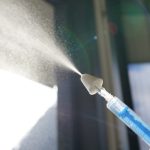OverdoseFreePA, a collaboration among six partner organizations and 16 Pennsylvania communities, has expanded its resources for all Pennsylvanians to learn more about overdose and the way substance use disorders affect people, families and communities.
“By having additional resources in one place, communities can form a comprehensive strategy and get a good picture of what they need to do to increase their treatment and prevention efforts,” said Jill Oblak, project director, Pennsylvania Heroin Prevention Technical Assistance Center (TAC).
The one-stop resource contains information such as what to do when someone is overdosing and an educational toolkit for health care and criminal justice professionals, as well as family and friends of overdose victims.
News articles about overdoses in the state are housed on the website, along with details on overdose-related events, training sessions and expert speaker recommendations. A dedicated section guides school and work leaders on how to facilitate open and honest conversations about the harmful effects of substance use and disorders, overdose risks, the opioid overdose antidote naloxone, and the hope that recovery is possible.
“We really have to work together to resolve and reduce these use disorders in our culture and the stigma associated with this issue,” said Dr. Jan Pringle, director of Program Evaluation Research Unit, University of Pittsburgh School of Pharmacy.
In 2014, Pennsylvania was named one of 20 states with a statistically higher rate of fatal overdoses than the national average. That year, Pitt Pharmacy established TAC and developed OverdoseFreePA to increase public knowledge of overdoses and overdose prevention strategies.
Funding for the project is provided by the Pennsylvania Commission on Crime and Delinquency.








